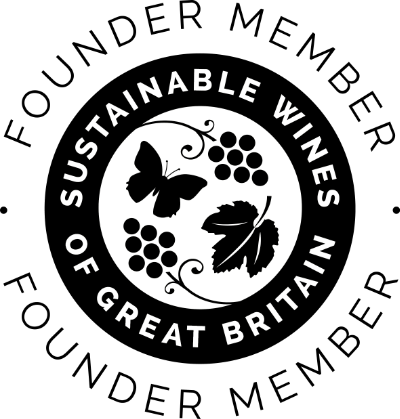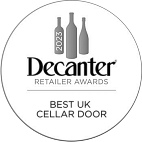Whether you’d love a Grand Cru nest-egg, or a cellar filled with gems to enjoy for years to come, a wine collection can be a huge source of pleasure. Here, Geordie Willis, of wine merchant Berry Bros. & Rudd, shares his advice on getting started.
It’s a busy day on Pall Mall. Tourists pose in front of St James’s Palace. Flags flutter against a bright spring sky. But just around the corner, as you step through the doors of Berry Bros. & Rudd, you enter another world. It takes a moment to adjust to the darkly wooded, dimly lit interior.
Wine and spirit devotees have been coming to this corner of St James’s for centuries, not just to buy, or drink, a special bottle - or to be weighed on the giant coffee scales which stand sentry in the corner - but also to lay down wine and create their own personal cellars.
Tucked away at the back of the old shop is the quiet, still sanctuary of the Parlour. A space suspended in time. Here, we meet Geordie Willis. Geordie is a custodian of the 325-year-old wine and spirits merchant and an eighth-generation Berry. There’s no one better placed to share expertise on starting a wine collection.
What it takes to be a wine collector
We start by talking about who “should” collect wine. Over the years, rock stars and Royalty have built their wine collections with Berry Bros. & Rudd. “But these days, there’s no such thing as an ‘average’ wine collector,” says Geordie.
“The idea of collecting wine is something that is interesting to all different ages, genders and demographics. The only real criteria are a love or an interest in wine.” But investing in a wine collection – rather than, say, an artwork which you can hang on the wall, or cars you can drive, or watches you can wear – takes a certain kind of mindset. After all, the greatest pleasure of a wine collection is drinking it. “True,” says Geordie. “But the pleasure of collecting wine isn’t just about owning something. It’s about the whole experience.”
And, whether people stumble into collecting wine by accident – “following a passion for a region or producer after they’ve travelled somewhere, say,” says Geordie – or with more of a game plan, one thing holds true. Even the most casual interest can quickly become a deep fascination. “Each wine is a story,” Geordie says. “It’s a moment in time – the year it was grown, the person who made it… If you’ve been somewhere and stood in a vineyard and felt
the sun in your face and the gravel beneath your feet, then you have an inherently closer link to the wine. Undoubtedly, this sense of connection is also true of vintages: a particular year can hold a significant meaning too.”
Collecting wine is about the luxury experience
While most of us like the idea that the wines we buy will increase in rarity and perhaps even value, Geordie is seeing a different pattern unfolding. “The enjoyment of fine wine is an interesting area – I think it aligns to what is increasingly important in terms of buying luxury as an experience. It’s the equivalent of high-end travel.
“Even though there is immense pleasure in owning something wonderful, ultimately what you’re buying is the experience of drinking that wine – and sharing that experience with those you choose to enjoy it with.”
In search of the newest fine wine region
As fine wine collectors seek out this luxury experience, are they changing where they are looking to invest? “It may sound very traditional, but I can’t see that Bordeaux and Burgundy will go out of fashion,” says Geordie.
And customers aren’t just turning to the New World in search of collectable fine wine – especially when one of the most exciting new regions is on the doorstep. “There’s no doubt that the perception of English wine has transformed in the past 20 years,” says Geordie. “I think that we’ll see increased demand – especially as people take pride in what we’re producing. Locally sourced, British produce has a growing appeal, especially amongst the category leaders like Gusbourne.
“The great benefit of English sparkling wine in the past has been its vibrancy and freshness and immediacy in some respects. But, at the prestige level, if you have the ageablity and the quality – if the wine is likely to improve in bottle – then people will want to keep it.
“If some of these prestige cuvees are as good as we know they are, then what’s going to be interesting is drinking them in 20 years rather than just enjoying them as they’re released. So, I suspect we’ll see more and more of these prestige wines finding their way into collections.”
Provenance is key when it comes to your wine collection When we talk about building a fine wine collection, we’re not talking about tucking away the odd bottle under the stairs. It’s important to understand the idea that fine wine will only improve if it’s kept in the right conditions. And it will only increase in value if its provenance is perfect.
Not all wines are right for a collection. “The best collections, of course, are filled with those wines which you want to drink,” says Geordie. “But, generally, these should be wines which will improve with age, and which are best secured on release because of their limited quantity and desirable quality.”
Most commonly, fine wine is stored In Bond (where the Duty and VAT has not yet been paid) “And, to do this successfully, your fine wines need to be kept in the right conditions.”
For a fine wine, the “right conditions” are somewhere consistently cool and dark, with stable humidity and free from vibrations or movement, but that’s not all: “Storing wine In Bond – before Duty and VAT have been paid – means you’re able to easily sell wine on the secondary market,” Geordie says.
“Although most of our customers will buy wine to enjoy, you do occasionally find yourself with a surplus. If you have any intention of selling a wine at a later date, it’s really important that its provenance is perfect. When it’s been kept In Bond, that’s guaranteed.”
The future of fine wine
Those who collect fine wine instinctively have an eye on the future – when will a particular bottle be coming into its drinking window? Which are the new producers to watch? What do the changes in climate mean for a particular region? These conversations naturally come round to sustainability and winemaking.
When you’re talking to a merchant that’s traded for more than three centuries, you’re in the hands of a business that knows a thing or two about sustainability. “We very much see our role as a merchant as one where we can bring people together to create a conversation around the future of wine. This is fundamentally important to the wine trade going forward.
“These days, our customers expect our producers to work in a low-impact way. It’s a hygiene factor,” says Geordie. “And it goes hand in hand with fine wine. We see that those wines which are made in a relatively low-intervention way with great care and love for the product all the way back to the vine tend to taste better.” Win win.
“Where we can help producers and customers – where we can connect them to help share knowledge about working sustainably – well, that’s part of our future as a wine merchant too.”
If the idea of building a wine collection appeals to you, you can find out more at bbr.com. The 2016 vintage of our prestige sparkling wine, Fifty One Degrees North, will be available to fine wine customers wishing to store In Bond through Berry Bros. & Rudd this summer.









